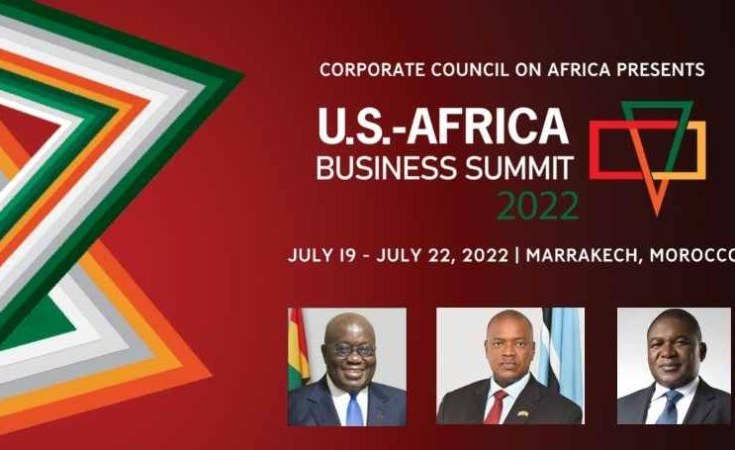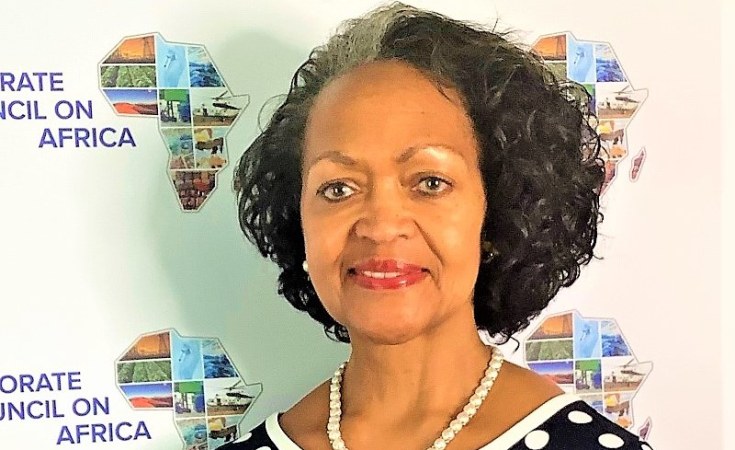Washington — The 14th edition of the US-Africa Business Summit kicks off on Tuesday in Marrakech, at the initiative of the "Corporate Council on Africa" (CCA), under the theme "building the future together".
Held under the High Patronage of His Majesty King Mohammed VI, the summit "provides an excellent opportunity to highlight the synergies of the U.S-Morocco, Morocco-sub-Saharan Africa, and broader U.S-Africa economic relationship", CCA president and CEO, Florie Liser said, recalling that Morocco is the only African free trade agreement partner and "can lead the way in showing how to enhance the U.S-Africa trade relationship".
In an extensive interview with the Moroccan News Agency (MAP) in Washington, she talked about the main topics and objectives of the summit, its significant after two years of the pandemic and in a context of increased geopolitical tension and risks of economic fragmentation with important impact on Africa, and the role of private sector and the need of more robust public-private partnership to ensure sustainable and inclusive growth.
Ms. Liser is the first woman to lead the Council since its founding in 1993. She brings to her role a strong track record of working with the private sector to translate policy into action. Before her current role, she was the Assistant U.S. Trade Representative for Africa since 2003.
1- The 2022 edition of the US-Africa business Summit is organized under the High Patronage of His Majesty King Mohammed VI. How do you assess Morocco's role in strengthening the strategic partnership with the United States and enhancing investment, business, and two-way trade with the continent?
At the outset let me offer my profound thanks to the government of the Kingdom of Morocco for partnering with CCA in hosting the 2022 Summit. We are greatly honored that the Summit is being held under the High Patronage of His Majesty King Mohammed V1.
The Summit provides an excellent opportunity to highlight the synergies of the U.S-Morocco, Morocco- sub-Saharan Africa, and broader U.S- Africa economic relationship. Morocco is the only African free trade agreement (FTA) partner and can lead the way in showing how to enhance the U.S-Africa trade relationship with key bilateral partners such as Kenya as well as through the AfCFTA.
Morocco is also one of the largest investors in sub-Saharan Africa, and potential partnerships linking U.S. and Moroccan investors into key sectors and projects across the African continent is something we hope can be sparked by the Summit deliberations. Improving energy and transportation infrastructure, addressing climate change and food security, and digitizing trade are other areas ripe for US.-Africa government and private collaboration and investment that will be vital to supporting African economic and sustainable growth, creating jobs and enhancing the prosperity of both African and Americans.
2- Is there a particular significance to this year's summit which comes after almost two years of the pandemic and in a context of increased geopolitical tension and risks of economic fragmentation with important impact on Africa?
This year's U.S.-Africa Business Summit comes at an important time when countries and businesses are re-emerging from the health and economic impact of the COVID 19 pandemic as well as the current Russia-Ukraine conflict - both of which have significantly affected global trade and investment patterns for both the United States and its African public and private sector partners. African and At CCA, we believe in the promise and great potential of U.S.-Africa business relations. Africa is not monolithic: its countries represent a diversity of history, culture, people, and language. While Africa is complex, its strategic and economic relevance to the United States is clear.
By the year 2025, more than half the population of Africa will be under age 25. By 2050, a quarter of the world's population will be African, and Nigeria will surpass the United States as the third most populous country in the world. In that same year, two in every five children will be born in Africa. By 2100, 13 of the world's 20 biggest urban areas will be in Africa. The continent is already one of the fastest growing consumer markets in the world with 1.4 billion people, and its growing middle class and large youth population represent significant export opportunities for U.S. goods and services. A productive youth population not only expands U.S. market opportunities but also reduces the conditions that foster global insecurity.

In terms of Africa's economic fragmentation, the adoption and implementation of the African Continental Free Trade Area Agreement (AfCFTA) will be a game changer for Africa. Africa is poised to become one of the world's most important economic regions. When the 54-country African Continental Free Trade Area (AfCFTA) is fully implemented, it will comprise the fifth-largest economic bloc in the world, representing a huge source of jobs, consumers, innovation, and power to shape the global economy. Beyond eliminating barriers to infra-African trade, the AfCFTA will also advance Africa's integration into regional and global value chains including with the United States. The AfCFTA will also potentially incentivize investment by U.S. and other companies into value-added manufacturing on the continent in key sectors such as pharmaceutical and medical products and batteries for electric vehicles.
3- The Summit is drawing high-level government officials, including heads of states and business leaders. Could you walk us through the main topics on the agenda and how can the Summit help tackle urgent issues like global food shortages, inflation, the persistence of Covid-19 and the effects of global warming which again severely impact many African countries?
The upcoming U.S.-Africa Business Summit theme will be "Building Forward Together" will bring together U.S. and African government and private sector leaders to engage on several critical issues impacting the U.S.-Africa economic relationship. We are pleased that there will be sessions on building a sustainable food ecosystem, Africa's production of medical products, net zero energy transition, building infrastructure, narrowing the digital divide, bringing African African stories to the global streaming audience, and investing in women and youth to name just a few. There will also be special sessions on investing in Botswana, Ghana, Morocco, and Cameroon, as well as opportunities to pitch to U.S. institutional investors, and to learn about USG initiatives like Prosper Africa.
We know from past CCA Summits that business connections are made, deals solidified, and new U.S.-Africa partnerships are launched or announced and anticipate that this year's Summit - our first in North Africa - will be similarly successful.
4- While the world is navigating a path forward through these crises. How can business and investment between the USA and Africa help build forward around strategic sectors such as health, financing, energy, infrastructure ... ?
Collaboration between governments and the private sector is critical to Africa and the U.S. building forward together around strategic sectors and effectively addressing a range of global challenges. For example, the U.S. government and private sector worked collaboratively with African nations and private sector partners to meet the unprecedented challenges caused by the COVID-19 pandemic. Ensuring more equitable vaccine access has been a key first step that has offered businesses in sectors ranging from health to ICT a unique opportunity to work together to meet Africa's public health needs.
Both companies and governments have had to scramble over the last two years to deal with unexpected and profound shocks to supply chains. There is a great opportunity in 2022 and beyond for companies and governments to develop a more resilient, secure set of supply chains and expand their collaboration to create new markets. CCA hopes, through its U.S.-Africa Health Security and Resilience Initiative (HSRI), to bring both U.S. and African public and private sector stakeholders together to discuss ways to collaborate on not only fighting COVID, but also building stronger African health systems. HSRI is a good example of the potential for collaboration to deliver real results.
There is also a strong need for U.S.-Africa public-private collaboration to strategically address the impact of the Ukraine war on Africa, its agricultural sector, and people. Africa's hundreds of millions of smallholder farmers, who already face challenges in accessing and using the latest and best technology to increase productivity, are now being hit by increased global commodity prices.


